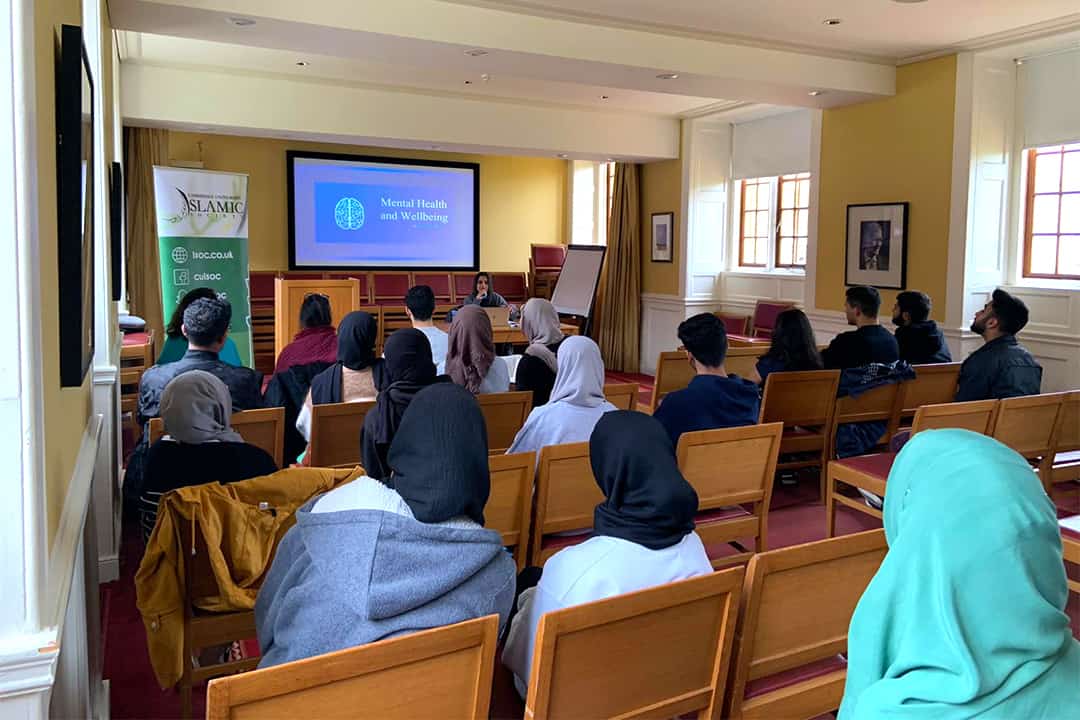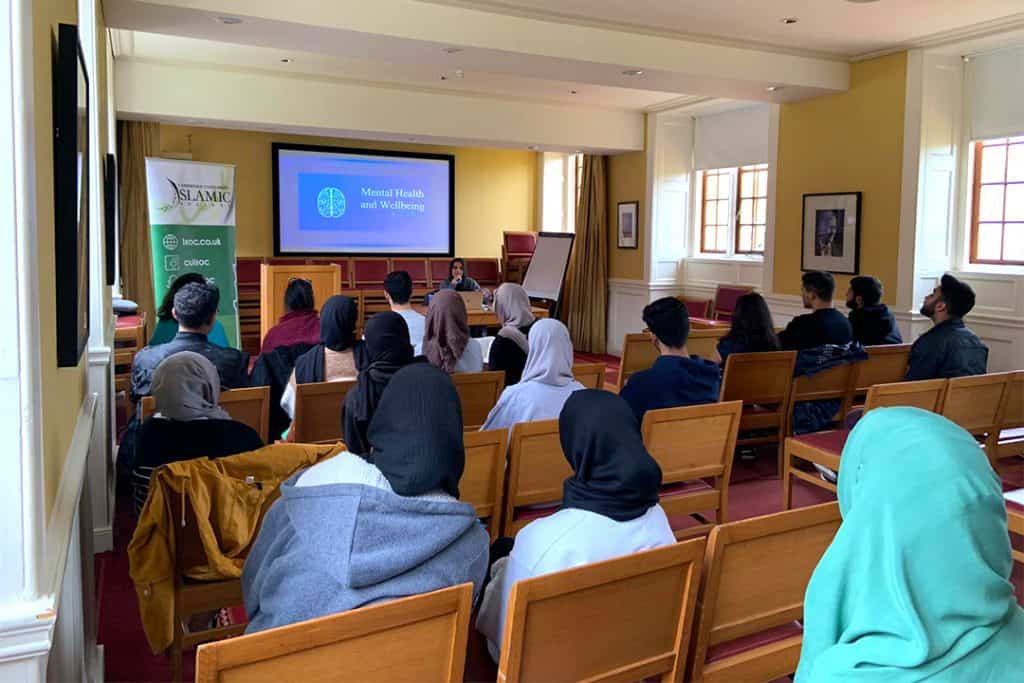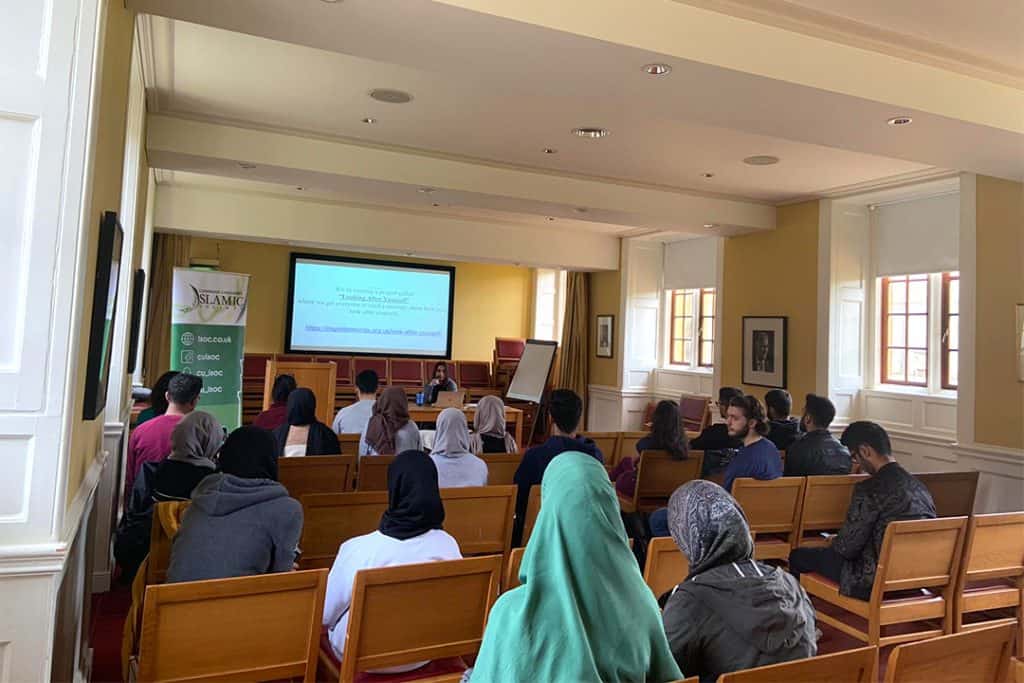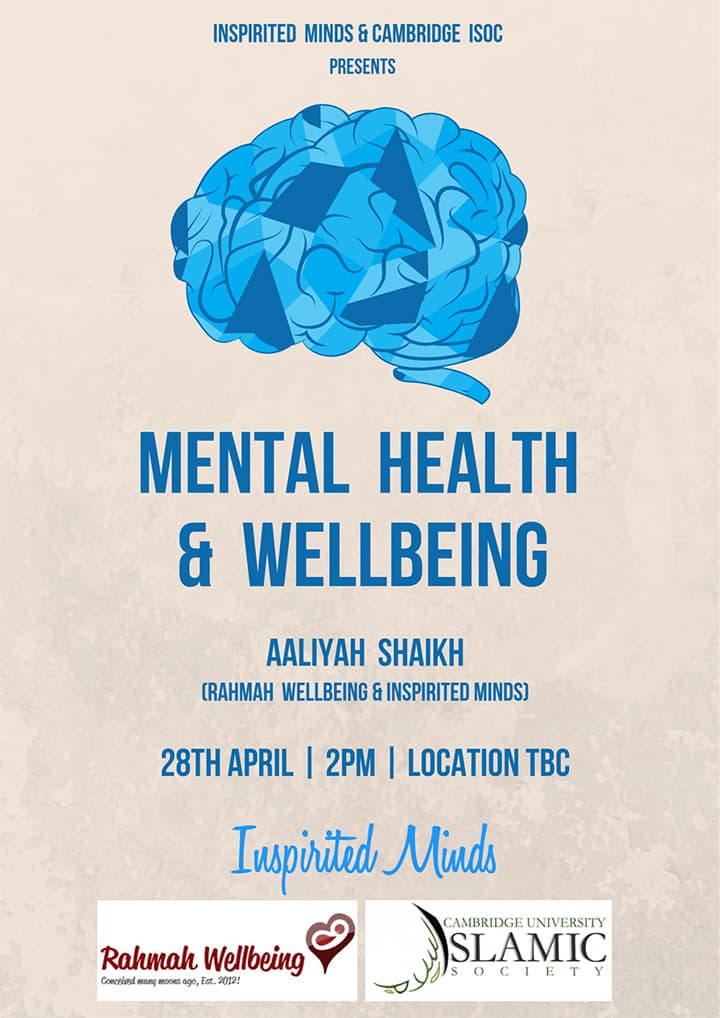We were invited by Cambridge University ISoc to share some thoughts on mental health and well-being rooted within an Islamic perspective. The timing of this event was significant given exam season had just begun and Ramadan just days away. We hoped that useful tips and insights could be shared in a particularly supportive way at this crucial time for many students.
I share my reflections below:
It was an honour and blessing being invited to the lush, serene and architecturally magnificent surroundings of Clare College, in the University of Cambridge as an alumna and on behalf of Inspirited Minds to give a lecture on mental health and wellbeing. The lecture included tips for the exam period, in particular during Ramadan. For many students this would be a stressful time: many first-year students are away from home for the first time, taking exams in a high-pressure environment whilst fasting in the holy month. I was also asked to talk about Islamophobia and fear and contextualised the overall talk with a broader discussion of understanding our earliest experiences and how these shape our emotions, feelings, behaviours and responses in the present.
To foreground; the presentation began with basic facts and common myths around mental health. Further explorations considered stress and trauma and how these impact the nervous system and our fear response mechanisms. We then went on to think about relationships—in particular understanding attachments, and how our need for others and our level of internalisation of security or lack thereof impacts our interactions with ourselves, others, and how we experience the world. Throughout this were weaved stories and examples from the Qur’an and Sunnah, in particular the story of Musa a.s and Umm Salamah. Some people had not heard these before and to particularly have teachings from our faith drawn upon within the context of discussing mental health was received positively and enlightening. We also spoke about contextualising our problems in the bigger picture of Islam i.e., surrendering ourselves to The Higher Power and letting go of control. This was an important reminder in a context like Cambridge where many students feel the need to be perfect and extremely high achieving—often it is these traits that have got them to a prestigious university, but they can be unhelpful if unchecked. We also spoke about who defines successes: how much have we introjected others’ ideas and do we know what our own definition would be if we unpack what we have internalised and the importance of reclaiming our thoughts about our self and the world on our terms. Tips for supporting the self and others were shared.
The audience were a lovely bunch of mostly students and a couple of professionals. Everyone was engaged, and powerful feedback was received about how positive and impactful the experience was, including one student repeating a number of times “amazing”! It seemed (and this was reinforced through feedback on the day) that for some it offered new information; for others consolidation of existing knowledge; for some, light bulb moments where it helped things to connect and make sense for them. Overall it was a delight to share knowledge, insights, experiences and research on the topic of wellbeing in a lovely supportive environment with a deeply respectful and thoughtful audience.
A message from Cambridge ISoc detailing how they felt regarding the impact of the event:
“The talk on mental health and well-being was received really well by the Cambridge ISoc members. The combination of scientific evidences and sources from the Quran & Sunnah provided an intellectual and religious basis that resonated with listeners. The topic of mental health is understated and not spoken about enough within society and the Muslim community (in particular) and thus the Cambridge ISoc were determined to provide a platform for such discussions on the topic and are grateful for the expertise of Aaliyah Shaykh and her insightful presentation.” (Organising member of the Cam ISoc Committee)
It was an honour for the InspiritedMinds team to be hosted by the Cambridge ISoc. We pray that all students achieve success and that they are able to use their knowledge and skills to better society. Ameen!
If you would like to get involved in raising awareness about mental health in your local community, we are looking to grow our outreach team to different cities around the country. We will ensure that you are fully trained and confident before running workshops/ talks. Please visit our website for more information: https://inspiritedminds.org.uk/get-involved/vacancies/






